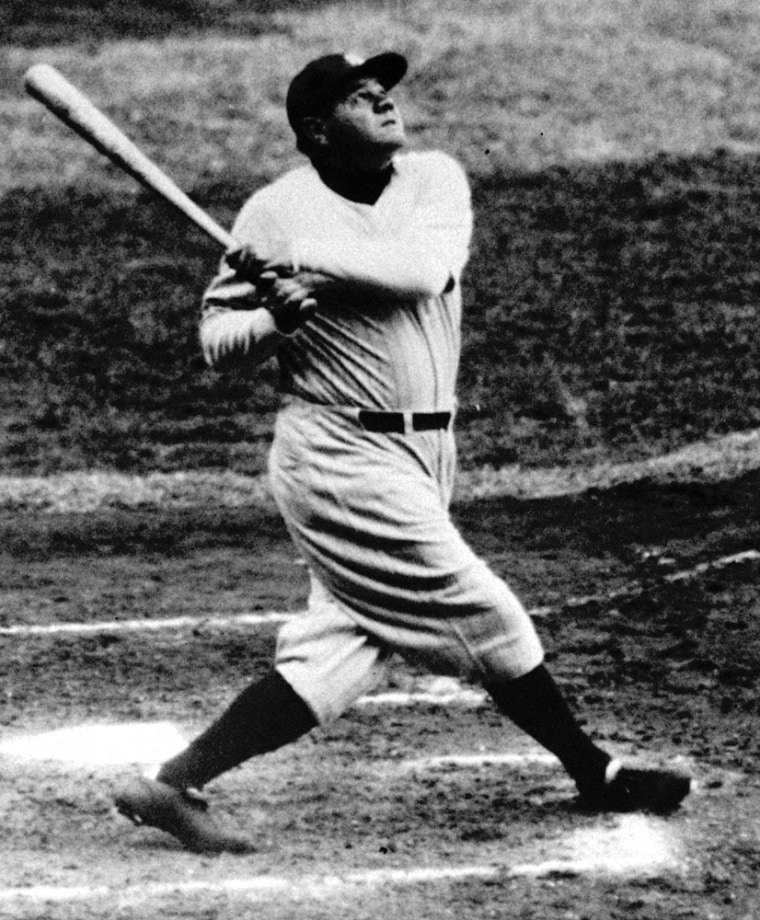Back in 1930, as the Great Depression started its long, tortuous reign, it was mentioned to New York Yankees slugger Babe Ruth that he made more money than President Herbert Hoover.
”I know,” said the Bambino, “but I had a better year than Hoover."
These days, sports business executives, experts and others lament the stock market drop, recession and generally poor conditions afflicting the industry. Layoffs have hit leagues such as the NBA, along with individual pro teams. Endorsements are drying up for Olympic athletes who starred in Beijing. Even networks that broadcast the NFL, the gold standard of American sports, are facing declining ad revenue in the fourth quarter, according to SportsBusiness Journal.
But just as Ruth’s $80,000 salary topped Hoover’s $75,000 take, sports and its athletes will survive bad times again and, in many ways, end up less battered than other industries.
Think of how much sports revenue is protected by long-term deals. Major League Baseball enjoys television pacts with Fox, Turner and ESPN that run until 2013; the NFL's multibillion-dollar deals don't run out for at least three more years.
For franchises, naming rights agreements for stadiums almost always last 20 years or more, which means the present doldrums aren’t a factor. Though Citicorp’s stock was pummeled, they are still honoring their lengthy deal for the Mets’ new park, Citi Field, and Lowe’s just extended its pact at a motor speedway in North Carolina. Contracts with top sponsors are almost always multi-year arrangements, as are luxury suite leases.
Because many fans are so devoted they would probably cut back on heat, food and other essentials before forgoing a Sunday at the stadium, sports attendance will never go into a freefall. And even today, some fans do not wince at paying huge prices for special seats.
In New York, the Jets recently finished an online auction for personal seat licenses for premium seats where the average fee reached a record $26,000, and some seat licenses sold for up to $82,000. The Yankees still plan to charge $2,500 a game for the top seats in their new stadium. And the NFL recently announced that February's Super Bowl will be the first boasting a $1,000 face-value ticket.
Those staying at home? Aside from a handful of pay-per-view events and specialty channels, it doesn't cost much to watch sports on TV, meaning ratings should hold tight. Even the Chicago Blackhawks finally relented and are broadcasting home games, so no fan of a team in one of the four major pro sports will be without.
History is on the side of sports, according to a report from Moag & Co., a specialty investment bank that analyzed the performance of professional sports during bear markets from 1970 to 2008.
"Businesses in most industries can experience dramatic declines in value during bear markets and periods of market instability," said the report, which was cited in the Baltimore Sun. "During these same periods of uncertainty, however, the sports industry has experienced either no decline or less of a decline than the broader markets."
It’s hard not to notice the bright spots. Philadelphia Phillies’ merchandise and memorabilia flew out of stores after their World Series championship. The Bowl Championship Series is asking for a 60 percent increase for its television rights; this summer, the SEC nabbed a big boost in
broadcast revenue, inking a $3 billion contract with ESPN and CBS. Even a small sports Web site, the Bleacher Report, recently secured millions of dollars in second-round funding while Fortune 500 companies like GM and Wachovia tottered.
And in some ways, the slowdown plays right into the hands of sports team owners. Is a collective bargaining agreement about to expire? They can plead poverty and demand stiffer salary caps. Do they need a new stadium? Here's a perfect way to create jobs for a city during a tough economy.
So don't weep for the sports world. No matter what happens, another New York Yankee will make more than the president of the United States in 2009. And for that $32 million man, Alex Rodriguez, it won't even matter if he has a better year than Barack Obama, who will pull in a paltry $400,000. After all, unlike Babe Ruth, A-Rod’s got a decade-long deal.
